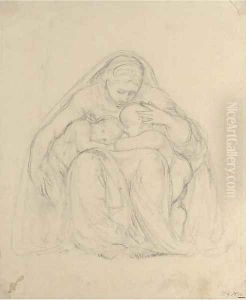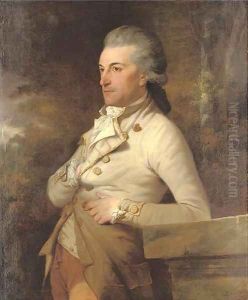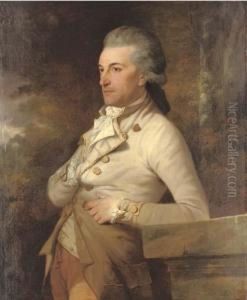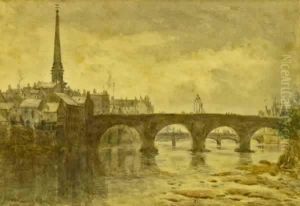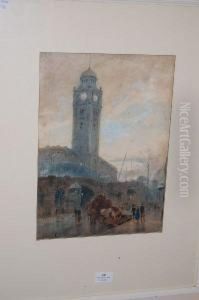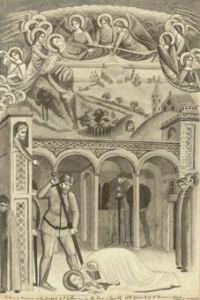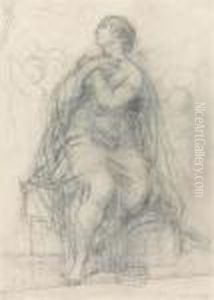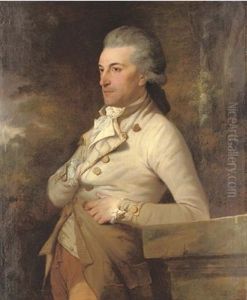William Young Ottley Paintings
William Young Ottley was an influential British art historian, collector, and draughtsman, born in 1771. His contributions to the study of art, particularly in the early history of engraving and the Italian Renaissance, marked him as a pioneer in the burgeoning field of art history in the late 18th and early 19th centuries. Ottley's interest in art was sparked at a young age, leading him to pursue studies that would lay the groundwork for his future career as a historian and collector.
Ottley spent a significant portion of his life in Italy, where he immersed himself in the study of Italian art and began collecting drawings and prints, which would later constitute one of the most significant collections of its kind in England. His time in Italy not only enriched his own understanding and appreciation of art but also allowed him to amass a collection that would be invaluable to scholars and the public upon his return to England.
In 1816, Ottley published 'The Italian School of Design', a collection of engravings that was among the first of its kind to make high-quality reproductions of drawings by Italian masters accessible to the British public. This publication was a landmark in the dissemination of knowledge about Italian Renaissance art and was instrumental in influencing British taste and interest in the period.
Perhaps Ottley's most significant contribution to the field of art history was his work on the early history of engraving. His extensive research and collection of prints allowed him to author 'An Inquiry into the Origin and Early History of Engraving', published in 1816. This two-volume work was groundbreaking in its detailed examination of the development of engraving in Europe and remains a valuable resource for scholars of printmaking history.
Ottley was also known for his efforts in the preservation and promotion of the arts. He played a role in the establishment of what would become the National Gallery, London, advocating for the creation of a public art collection that would be accessible to all. His commitment to the arts was evident in his work as a collector, scholar, and advocate until his death in 1836. Through his publications and collection, William Young Ottley left a lasting impact on the study of art history and the appreciation of Renaissance art in England.
